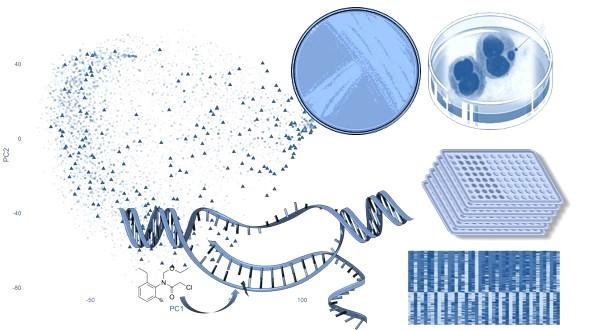
The database now includes 211 new chemicals with negative results in the Ames test, a widely employed in vitro method based on bacteria to identify if a chemical can cause mutations in DNA.
Damage to DNA caused by chemicals is concerning since it can contribute to the initiation and development of many serious health effects including birth defects and cancer.
Scientists from the JRC’s EU Reference Laboratory for alternatives to animal testing (EURL ECVAM) collaborated with a group of international experts to compile this unique dataset from several sources. In addition to Ames-negative results, it also contains complementary genotoxicity and carcinogenicity data from other types of tests.
The database is a highly valuable resource for evaluation of genotoxicity studies and the development and validation of alternative methods to animal testing.
Better testing our chemicals to protect environmental and human health
According to JRC scientist and study coordinator Federica Madia, “Our genotoxicity database contains rigorously curated information which we’re confident will advance the identification of genotoxicants and our understanding of them. This will help the EU do a better job in testing chemicals to protect human health and the environment”.
The new dataset adds to the EURL ECVAM Genotoxicity and Carcinogenicity Consolidated Database of Ames-positive chemicals previously published in the EURL ECVAM Collection of the JRC Data Catalogue.
The database has become a key resource for academia, industry and the regulatory community. It contributes for example to the development and validation of new in vitro and computational methods and the design of testing and assessment strategies used in a variety of sectors including food, cosmetics, pesticides and industrial chemicals.
Ames test and carcinogens
The Ames test, also known as bacterial reverse mutation test, identifies the ability of a chemical to induce gene mutations in bacterial DNA.
The assessment of genotoxicity and carcinogenicity is an essential requirement for the safety assessment of chemical substances in the EU. This is typically done in a step-wise approach whereby a battery of in vitro tests in both bacterial and mammalian cells are employed to detect genotoxicity effects. In certain cases in vitro testing is then followed by in vivo studies in rodents.
Due to its relative simplicity and low cost, the Ames test is usually employed as an initial screen to determine the mutagenic potential of new substances in the early stages of product development.
Find out more
A detailed description of the new Ames-negative dataset together with suggestions for further analysis are provided in the related scientific paper EURL ECVAM Genotoxicity and Carcinogenicity Database of Substances Eliciting Negative Results in the Ames Test: Construction of the Database.
Related Content
Details
- Publication date
- 31 July 2020
